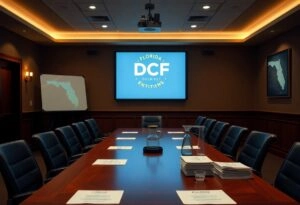Understanding 51B Investigations in Massachusetts

What is a 51B Investigation? Key Facts
51B investigations by the Massachusetts Department of Children and Families (DCF) can be an overwhelming experience. Understanding the process is essential for safeguarding your rights and ensuring the best outcome for your family. In this post, we will delve into the key aspects of the 51B investigation process, drawing from our trusted experience of protecting parents’ legal rights since 1991.
What is a 51B Investigation?
It is an initiated after a 51A report, which is a report of suspected child abuse or neglect. The purpose of the 51B investigation is to assess the validity of the 51A report and determine whether the child is at risk.
-
Initiation: Triggered by a 51A report, which can be filed by mandated reporters or any concerned individual.
-
Objective: To evaluate the safety of the child and decide if further action is needed.
Steps and What to Expect During a 51B Investigation
The 51B investigation follows a structured process, which includes several key steps:
-
Notification: DCF will notify you about the investigation and should, but do not always, tell you about the full allegations made.
-
Home Visit: A DCF social worker will visit your home to assess the living conditions and interview family members.
-
Interviews: The social worker will conduct interviews with the child, parents, and other relevant individuals.
-
Documentation Review: The investigator will review relevant documents, including medical records, school reports, and any prior DCF involvement.
Your Rights During a 51B Investigation
Understanding your rights during the 51B investigation is crucial for ensuring fair treatment and protecting your family.
-
Right to Legal Counsel: You have the right to seek legal representation.
-
Right to be Informed: You must be informed of the specific allegations and the process involved.
-
Right to Privacy: You have control over the information you share with DCF. It’s advisable to consult with a lawyer before providing any information.
How to Navigate the 51B Process Wisely
Taking proactive steps can significantly influence the outcome of the 51B investigation.
-
Cooperate Wisely: While cooperation is necessary, be mindful of the information you share.
-
Document Interactions: Keep detailed records of all communications with DCF, including dates, times, and the names of individuals involved.
-
Consult an Attorney: An experienced DCF defense attorney can provide valuable guidance and help protect your rights.
Possible Outcomes of a 51B Investigation: What Happens After a 51B Investigation?

The 51B investigation can lead to several possible outcomes, depending on the findings of the DCF social worker.
-
Unsubstantiated: If the allegations are found to be unsubstantiated, the case will be closed with no further action.
-
Substantiated or Supported: If the allegations are substantiated or supported, DCF may conduct a further assessment of the family or take legal action to protect the child.
-
Court Involvement: In some cases, DCF may seek court intervention, which could include removal of the child from the home and placement in foster care.
It can be challenging, but understanding the process and knowing your legal rights can help you manage the situation effectively. If you are facing a 51B investigation in Massachusetts, it’s crucial to seek the assistance of an experienced and knowledgeable DCF defense attorney who specializes in protecting families’ rights.
For more detailed information and insights, watch our videos on YouTube.
If you find yourself in this situation, it’s advisable to seek legal representation from a qualified attorney, like those at the Law Office of Kevin Seaver, who can advocate for your rights and guide you through the complex process of a DCF investigation.
Remember that the ultimate goal of DCF is to ensure the safety and well-being of children while supporting families in crisis.
Please note that this article does not create an Attorney-Client relationship between our law firm and the reader and is provided for informational purposes only. Information in this article does not apply to all readers.
Readers should not rely on this information as legal advice and should seek specific counsel from the attorney based on personal circumstances. Thank you.






